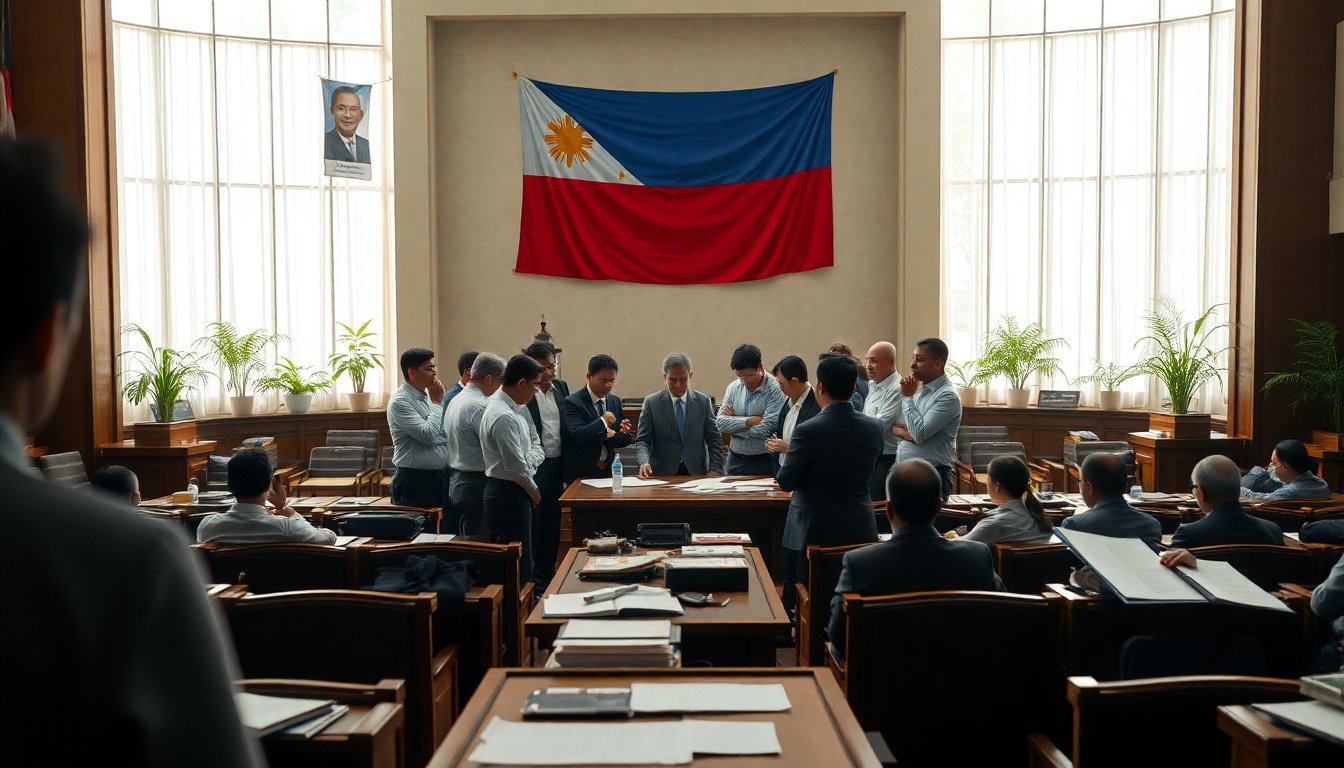Table of Contents
The political landscape in the Philippines is currently facing significant challenges, highlighted by the recent dismissal of key officials. This situation has exposed underlying tensions between the executive and legislative branches. The saga began with the controversial removal of a high-ranking police official, prompting questions regarding governance and accountability. As more details emerge, it is evident that the repercussions may extend beyond administrative decisions, potentially involving prominent government figures and creating a ripple effect throughout the political system.
The Dismissal of Torre: Implications and Reactions
Interior Secretary Jonvic Remulla has characterized the dismissal of Torre as an administrative matter. However, sources indicate it originates from Torre’s refusal to comply with a directive from the National Police Commission (Napolcom). This directive involved a contentious proposal to acquire a large number of firearms, with costs estimated at 8 billion Philippine pesos (approximately US$140 million). Torre’s opposition to what he deemed an “overpriced” procurement has raised concerns and ignited discussions among lawmakers.
Critics have highlighted discrepancies within the proposal. Estimates suggest that fewer than 40,000 police officers may need long arms, significantly less than the 80,000 requested. This situation underscores the necessity for fiscal responsibility and the importance of aligning procurement strategies with actual operational needs. As discussions continue, the potential for further fallout remains significant.
Rifts Between the Executive and Legislative Branches
This political saga has illuminated the growing divide between the executive and legislative sectors in the Philippines. The implications of this rift are profound, threatening the stability of governance. The tensions resulting from Torre’s dismissal may prompt a reevaluation of how directives are issued and adhered to within the government. Moreover, ongoing scrutiny of high-ranking officials may hinder future collaboration between branches, which is essential for effective governance.
As the situation evolves, monitoring how these events affect public sentiment and trust in government institutions is crucial. Increased scrutiny of government spending and decision-making processes could serve as a catalyst for reform. The public’s reaction will play a vital role in shaping the political landscape as citizens demand greater transparency and accountability from their leaders.
Looking Ahead: Potential Outcomes and Impacts
As the political crisis unfolds, it is important to consider the potential outcomes and their implications for governance in the Philippines. If tensions between the executive and legislative branches continue to escalate, it may lead to legislative gridlock, hindering the government’s ability to implement necessary reforms and respond effectively to pressing issues.
Furthermore, the ongoing scrutiny of government officials may result in heightened calls for transparency, possibly shifting how public resources are allocated. If the public demands accountability, officials may face pressure to justify their decisions and expenditures, fostering a culture of responsibility within the government.
In conclusion, the current political turmoil in the Philippines serves as a reminder of the fragility of governance and the critical importance of collaboration between branches. The fallout from Torre’s dismissal could prompt significant changes in the political landscape, shaping the future of governance in the country. As this situation continues to develop, the implications for accountability, transparency, and public trust will remain paramount.


